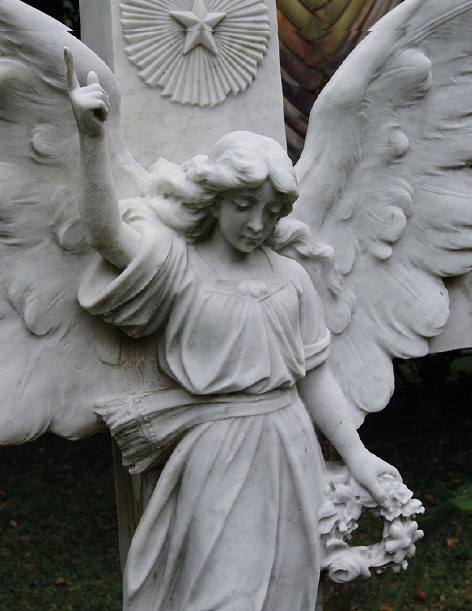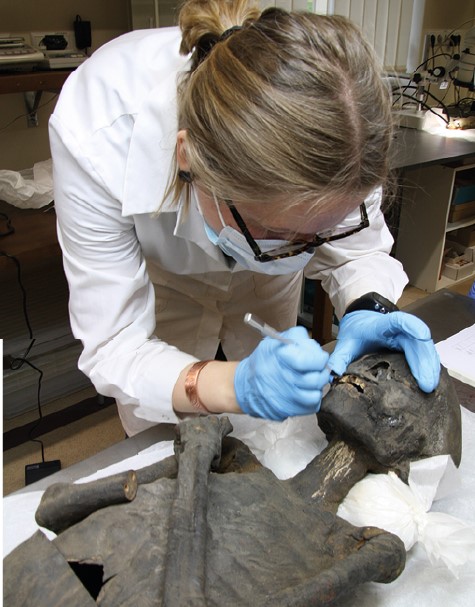WE ARE living, breathing creatures. In the course of time we will die. Will there be any part of you or me that survives after we die? Or is death a complete end of consciousness—do we simply cease to be?
It is a subject that evokes strong opinions and emotions. The idea that an immaterial part of us will survive death and continue to exist in a disembodied state, is basic to many of the world’s religions. It is believed by the majority of the churches of Christendom. It is such a widely held view that it is often assumed to be a fundamental doctrine of Christianity.
There is only one authority by which we can establish what is true Christian doctrine—that is the Bible. Let’s look at what the Bible says on the subject.
The Creation of Life
The account of the creation of life is very plain. ‘The Lord God formed the man of dust from the ground and breathed into his nostrils the breath of life, and the man became a living creature’ (Genesis 2:7). No part of this language conveys the idea of immortality. The ‘breath of life’ is the possession of all animals: ‘For behold, I will bring a flood of waters upon the earth to destroy all flesh in which is the breath of life under heaven’ (6:17). This phrase is used of both people and animals—they are all living, breathing organisms. The nature of their life is basically the same.
Humans differ from every other form of life in that we are made in the likeness of God: ‘Then God said, “Let us make man in our image, after our likeness’ (1:26). We have a mental and moral endowment which distinguishes us from other creatures. For this reason our first ancestor Adam was placed under a law, for the formation of his character: and he was told that disobedience would be punished by death: ‘Of the tree of the knowledge of good and evil you shall not eat, for in the day that you eat of it you shall surely die’ (2:17).
Adam disobeyed, and sentence was passed: ‘By the sweat of your face you shall eat bread, till you return to the ground, for out of it you were taken; for you are dust, and to dust you shall return’ (3:19). This is death – we return to the ground, to dust.
This record in the opening pages of the Bible is confirmed by all subsequent references. The Apostle Paul turns back to Genesis to explain the need of man in relation to God’s work in Jesus Christ. He shows that the ‘fall’ in the Garden of Eden is the background of Christ’s work of salvation. We cannot ignore Genesis if we believe in Christ—neither can we understand the need for Christ unless we know what is written in Genesis. Paul says, ‘Sin came into the world through one man, and death through sin, and so death spread to all men because all sinned’ (Romans 5:12); ‘sin reigned in death’ (v. 21); ‘the wages of sin is death’ (6:23).
When he is explaining about the resurrection of the dead, Paul finds the cause of death’s universal sway in human disobedience:
As by a man came death, by a man has come also the resurrection of the dead. For as in Adam all die, so also in Christ shall all be made alive (1 Corinthians 15:21–22).
The Lord Jesus himself taught the same thing—that sin and death are related as cause and effect. ‘Unless you believe that I am he you will die in your sins’ (John 8:24). There is escape from death only by belief in Jesus Christ. The purpose of his coming was to provide this deliverance. ‘For God so loved the world, that he gave his only Son, that whoever believes in him should not perish but have eternal life’ (John 3:16).
The simple Bible truth that when we die we return to the dust is emphasized by a number of plain statements that in death all consciousness ceases. You are your body: when it returns to dust, you will cease to be. There was a time when you had no existence, and if you die your existence will cease.
Solomon, a man of divinely bestowed wisdom, wrote: ‘Whatever your hand finds to do, do it with your might, for there is no work or thought or knowledge or wisdom in Sheol, to which you are going’ (Ecclesiastes 9:10). (‘Sheol’ is the Hebrew word for the grave.)
The Psalmist asks of God, ‘Do you work wonders for the dead? Do the departed rise up to praise you? Is your steadfast love declared in the grave, or your faithfulness in Abaddon? Are your wonders known in the darkness, or your righteousness in the land of forgetfulness?’ (Psalm 88:10–12). (‘Abaddon’ is a Hebrew word meaning ‘place of destruction’.)
Body and Soul
There is no escape from these definitive testimonies by suggesting that they have reference only to bodily form, whereas the real person continues independent of the body. The state of death is a complete end of all activity, mental and bodily. ‘The living know that they will die, but the dead know nothing, and they have no more reward, for the memory of them is forgotten. Their love and their hate and their envy have already perished, and for ever they have no more share in all that is done under the sun’ (Ecclesiastes 9:5–6). All life’s activities, all mental manifestations, cease with death. The dead know nothing.
The Psalmist says, ‘In death there is no remembrance of you; in Sheol who will give you praise?’ (Psalm 6:5). Again, ‘Put not your trust in princes, in a son of man, in whom there is no salvation. When his breath departs, he returns to the earth; on that very day his plans perish’ (Psalm 146:3–4).
When King Hezekiah had been mortally ill and God had prolonged his life, he sang these words of praise: ‘For Sheol does not thank you; death does not praise you; those who go down to the pit do not hope for your faithfulness. The living, the living, he thanks you, as I do this day’ (Isaiah 38:18–19).
The Bible speaks of the transience of our lives. The Psalmist said of God: ‘Behold, you have made my days a few handbreadths, and my lifetime is as nothing before you. Surely all mankind stands as a mere breath!’ (Psalm 39:5). The apostle said to his fellow believers, ‘You do not know what tomorrow will bring. What is your life? For you are a mist that appears for a little time and then vanishes’ (James 4:14). The Bible never uses any language which suggests that after death there is a transferral to another plane of existence. The term ‘immortal soul’ never appears in the Bible.
Resurrection
But in the Bible there are abundant references to life beyond the grave. The Bible speaks of eternal, glorious life, free from all the ills of mortality which beset us now. When the Bible speaks of eternal life, it is by means of resurrection from the dead, and a change of nature from mortal to immortal, from corruptible to incorruptible.
Behold! I tell you a mystery. We shall not all sleep, but we shall all be changed, in a moment, in the twinkling of an eye, at the last trumpet. For the trumpet will sound, and the dead will be raised imperishable, and we shall be changed. For this perishable body must put on the imperishable, and this mortal body must put on immortality (1 Corinthians 15:51–53).
Jesus Christ said, ‘I am the resurrection and the life. Whoever believes in me, though he die, yet shall he live’ (John 11:25). Immortality is a matter of promise, made to those who belong to Jesus Christ. It is therefore not something that is inherent within us.
The realisation of the Bible’s teaching about our mortality may cause discomfort, but it should not. Eternal life in the Kingdom of God is a joyous prospect, a promise made sure by the resurrection of Jesus Christ.
From Thus Saith the Lord



